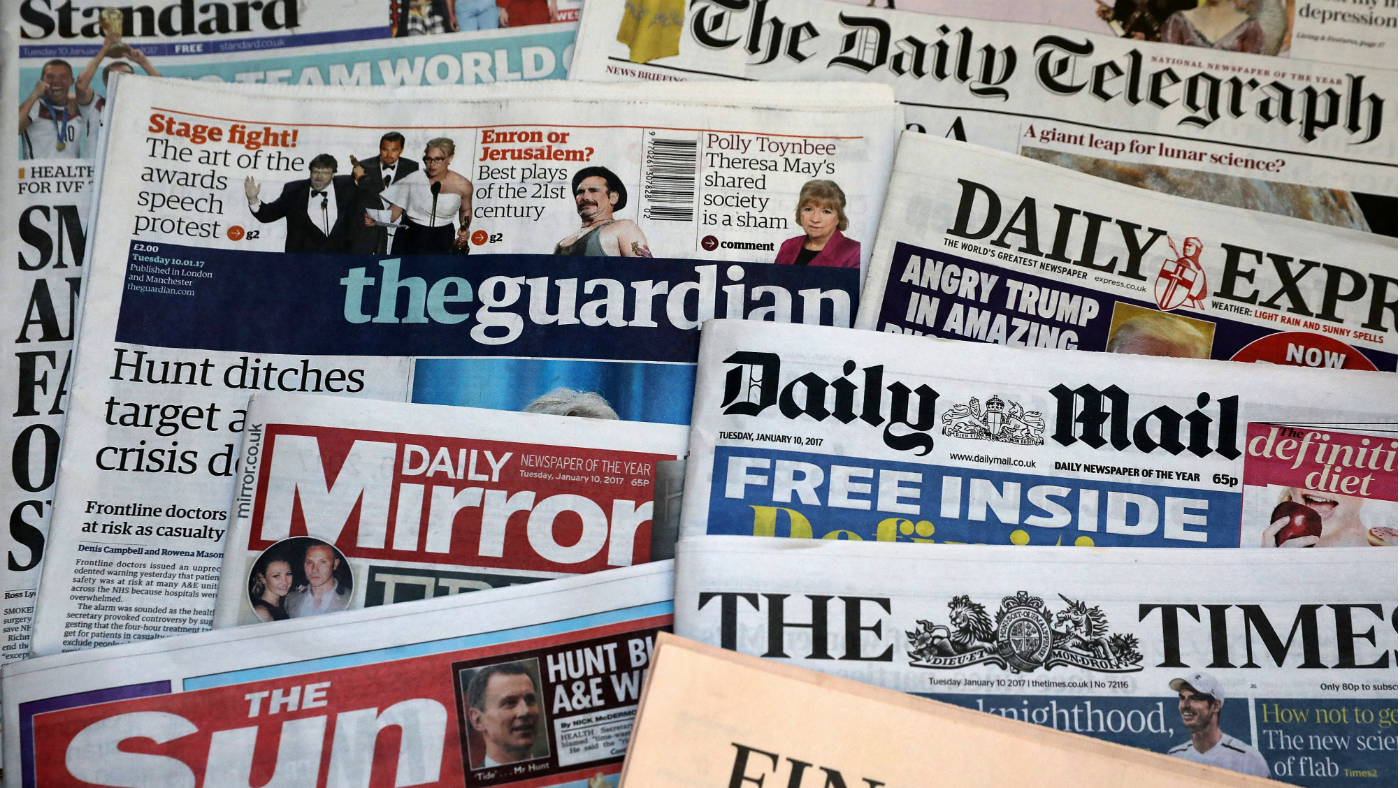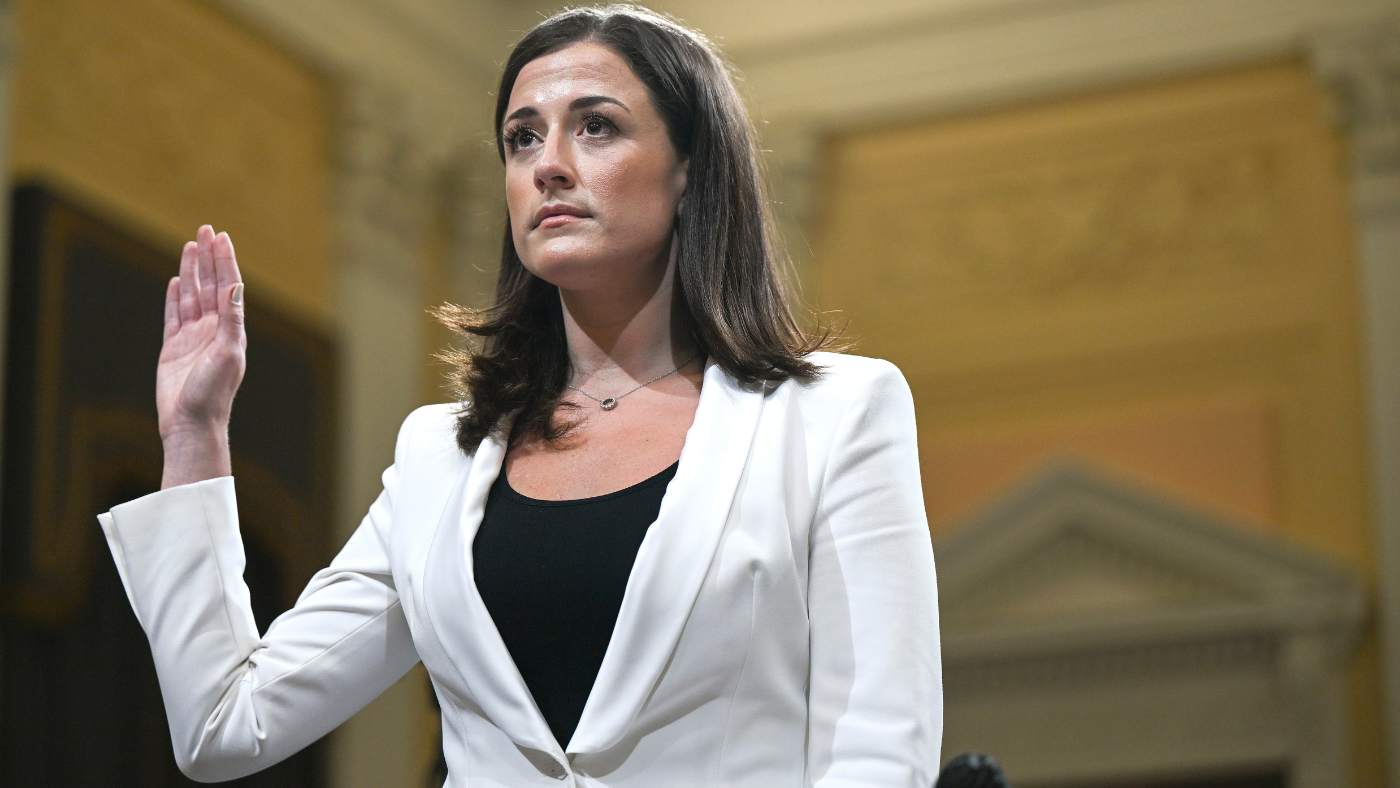Instant Opinion: Capitalism ‘still best hope for roaring Twenties’
Your guide to the best columns and commentary on Thursday 2 January

A free daily email with the biggest news stories of the day – and the best features from TheWeek.com
You are now subscribed
Your newsletter sign-up was successful
The Week’s daily round-up highlights the five best opinion pieces from across the British and international media, with excerpts from each.
1. Ruth Sunderland in The Daily Mail
on the new decade
The Week
Escape your echo chamber. Get the facts behind the news, plus analysis from multiple perspectives.

Sign up for The Week's Free Newsletters
From our morning news briefing to a weekly Good News Newsletter, get the best of The Week delivered directly to your inbox.
From our morning news briefing to a weekly Good News Newsletter, get the best of The Week delivered directly to your inbox.
Capitalism has many obvious faults, but it is still our best hope for the roaring Twenties
“It’s certainly possible to paint a dark picture of the past ten years and to extrapolate that the next decade will be bleak. But if we look beyond our own immediate reality, a different narrative emerges. Yes, recent years have been marked by debt and financial crises, but millions of people have been lifted out of poverty. Thirty years ago, the World Bank found more than a third lived in extreme poverty. Today, it is less than 10 per cent and infant mortality has more than halved in the last 20 years, says the World Health Organisation. Capitalism has many obvious faults, but it is still our best hope for the new decade.”
2. David Aaronovitch in The Times
on doing the right thing
A free daily email with the biggest news stories of the day – and the best features from TheWeek.com
We can never be sure we’d be the good guys
“Even at the last election I saw, with dismay, just how blatantly some politicians could praise in honeyed terms the very things that they had been deprecating just weeks earlier. And doing it while using the language of moral certainty. As though they had no inner compass left. I look at the Republicans in the US defending in Trump what they would have described as treason in a Democrat and wonder what they would not be capable of. And me. Can I be so sure that, if the test came, I wouldn’t be a bad guy or a very quiet guy, rather than the good man I always complacently considered myself? How can we know? But if there had been no Hitler, no 1933 seizure of power, no Bolshevik coup, no Milosevic, then Eichmann would have been an oil salesman, Beria would have been a local government officer and Karadzic would have been a professional swindler. The moral, for this year as for every other, is to make sure that the test never comes.”
3. Margaret McCartney in The Guardian
on wellness
The wellness industry is selling you the myth that a healthy life is expensive
“Rather than wellbeing being straightforward (don’t smoke, don’t drink too much, do exercise you like, eat a variety of foods, with lots of vegetables and little processed stuff, see people and do things) the industry has created its own mythology. Wellbeing is presented as complicated, complex, difficult to achieve correctly and best when purchased – all while requiring gurus to access it. This entanglement of industries makes what should be straightforward – a healthy lifestyle – into a complicated consumerist mess.”
4. Sherelle Jacobs in The Daily Telegraph
on cultural elites
Kowtowing to Stormzy and Greta Thunberg exposes our elite’s lazy groupthink
“Stormzy and Thunberg are the eerie pin-ups of an anti-rational age. They remind us that, though the working-class heartlands are reeling from populist revolt, an intolerant and lazy metrollectual elite continues to dominate our culture and media.”
5. Ian Hamilton in The Independent
on drugs
Drugs boosting concentration and memory will be in offices by 2030 – but only for rich people
“The ambition and billions spent on trying to eradicate the use of drugs has proved pointless. Drugs are, and will continue to be popular. But what will change is the type of drugs we will use in the future, as well as how they will be taken, and why. The old staples heroin, cocaine and cannabis will continue to have their consumers, but amid widening inequalities in wealth, education and opportunity, drug use among the most deprived in society will increase. This drug ‘ghettoisation’ will grow as the harms of substances are felt most acutely by those who have the least, while those with social and material capital continue to be protected from the worst effects.”
–––––––––––––––––––––––––––––––For a weekly round-up of the best articles and columns from the UK and abroad, try The Week magazine. Start your trial subscription today –––––––––––––––––––––––––––––––
-
 4 Americans kidnapped in Mexico by armed gunmen, 2 killed, FBI says
4 Americans kidnapped in Mexico by armed gunmen, 2 killed, FBI saysSpeed Read
-
 ‘The UK’s malaise will not end with the Prime Minister’s exit’
‘The UK’s malaise will not end with the Prime Minister’s exit’Instant Opinion Your digest of analysis from the British and international press
-
 ‘Police tactics are not getting worse, they are simply being filmed’
‘Police tactics are not getting worse, they are simply being filmed’Instant Opinion Your digest of analysis from the British and international press
-
 ‘G7 leaders missed a golden opportunity’
‘G7 leaders missed a golden opportunity’Instant Opinion Your digest of analysis from the British and international press
-
 ‘It takes some soul searching to celebrate Canada Day’
‘It takes some soul searching to celebrate Canada Day’Instant Opinion Your digest of analysis from the British and international press
-
 ‘Breakthrough on abortion rights could be there if Biden reaches for it’
‘Breakthrough on abortion rights could be there if Biden reaches for it’Instant Opinion Your digest of analysis from the British and international press
-
 ‘If only Mark Meadows had even half Cassidy Hutchinson’s courage’
‘If only Mark Meadows had even half Cassidy Hutchinson’s courage’Instant Opinion Your digest of analysis from the British and international press
-
 ‘Boris Johnson measures success in biceps rather than brain power’
‘Boris Johnson measures success in biceps rather than brain power’Instant Opinion Your digest of analysis from the British and international press


